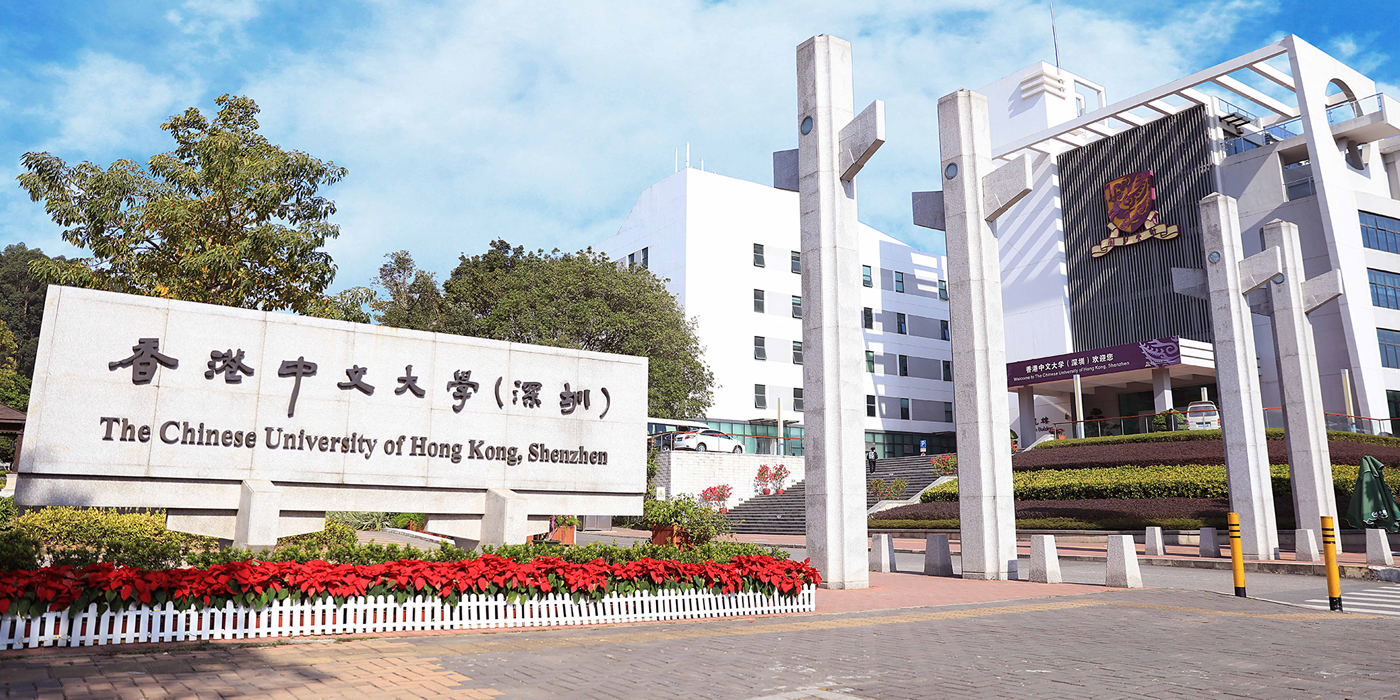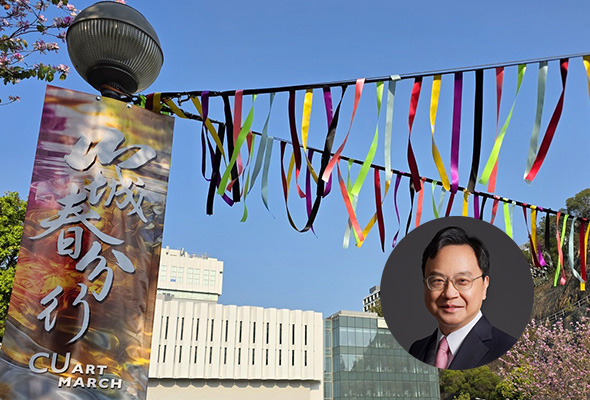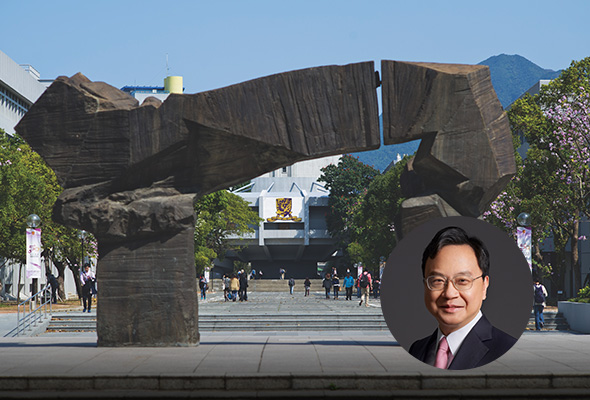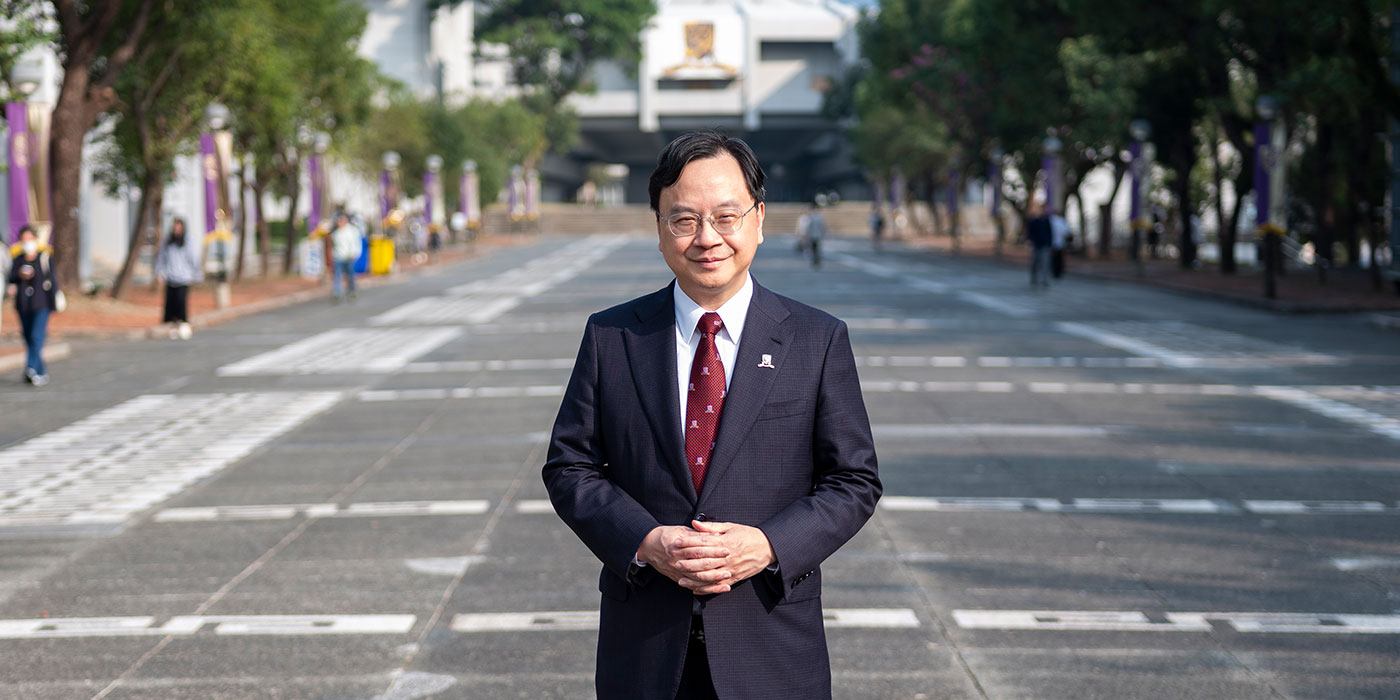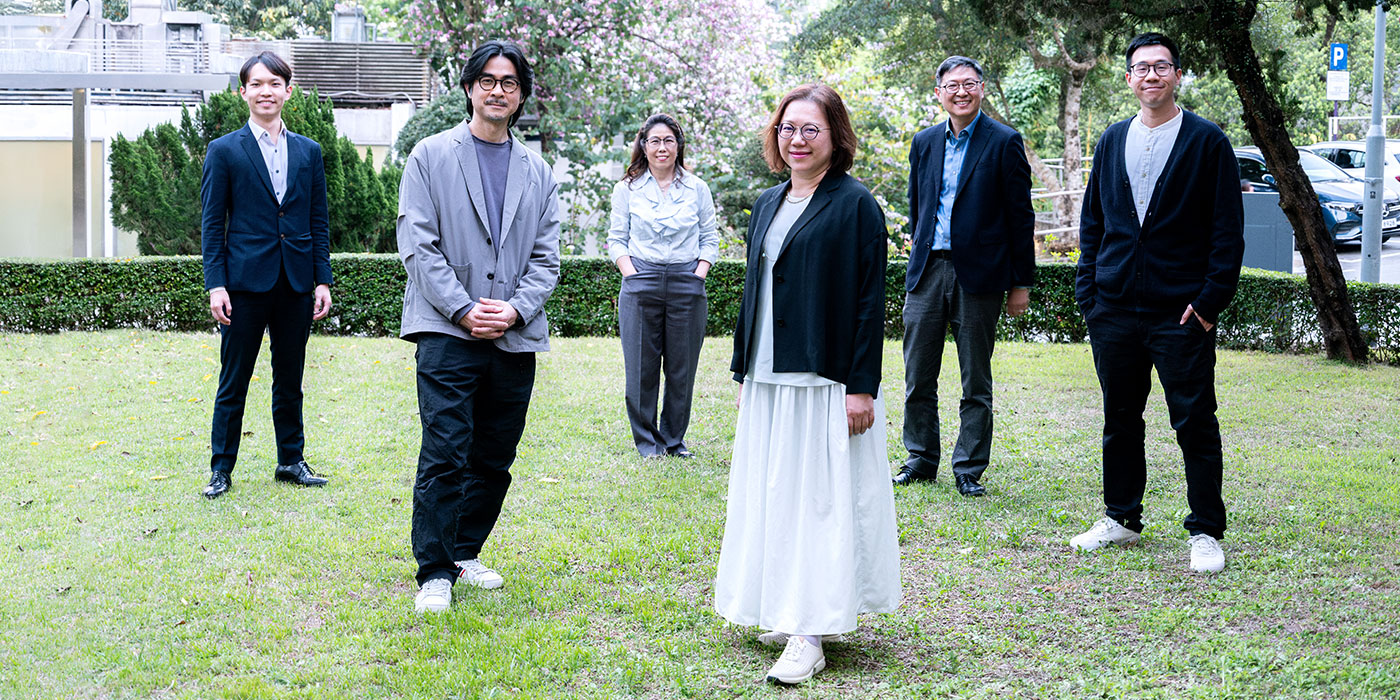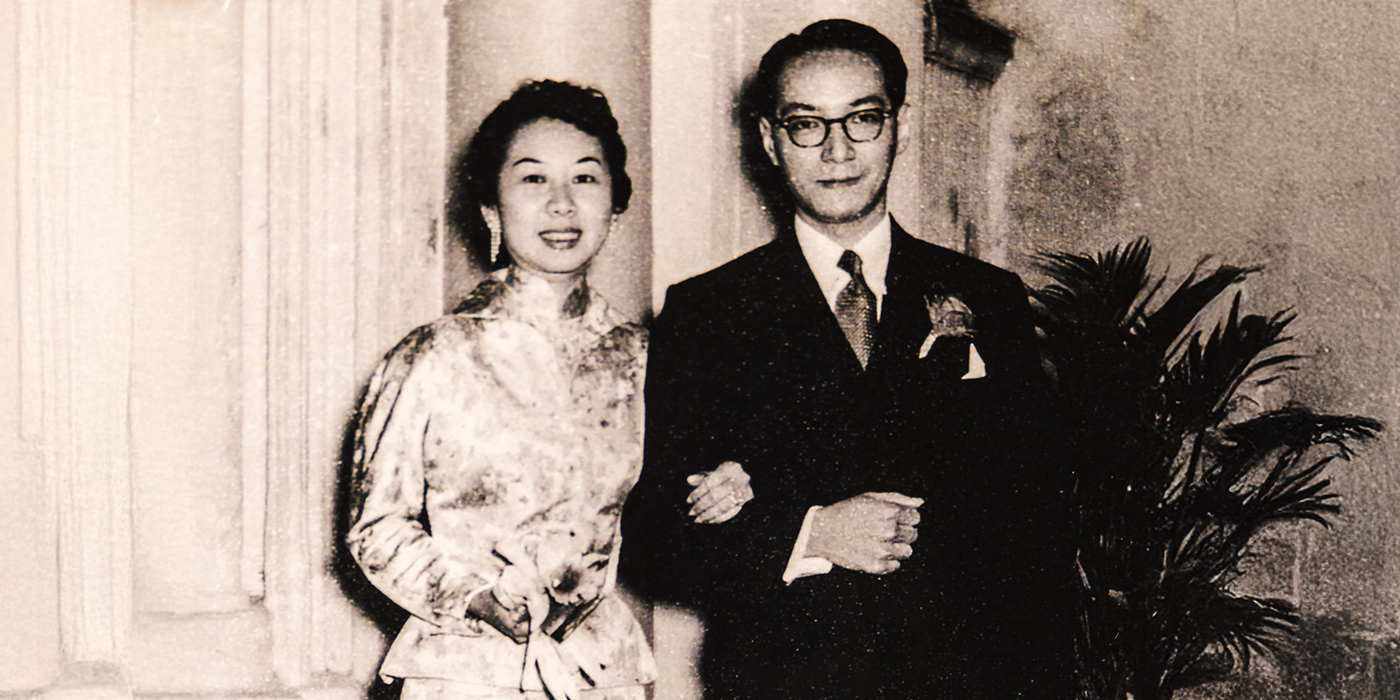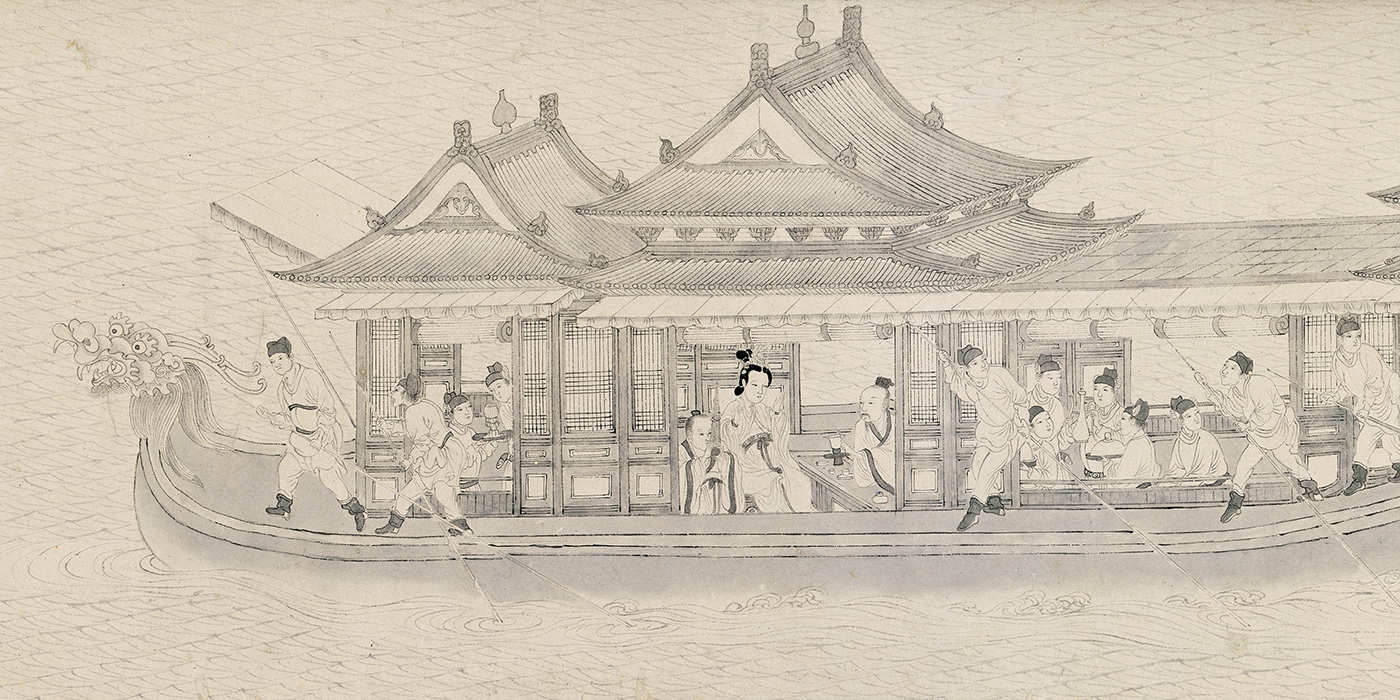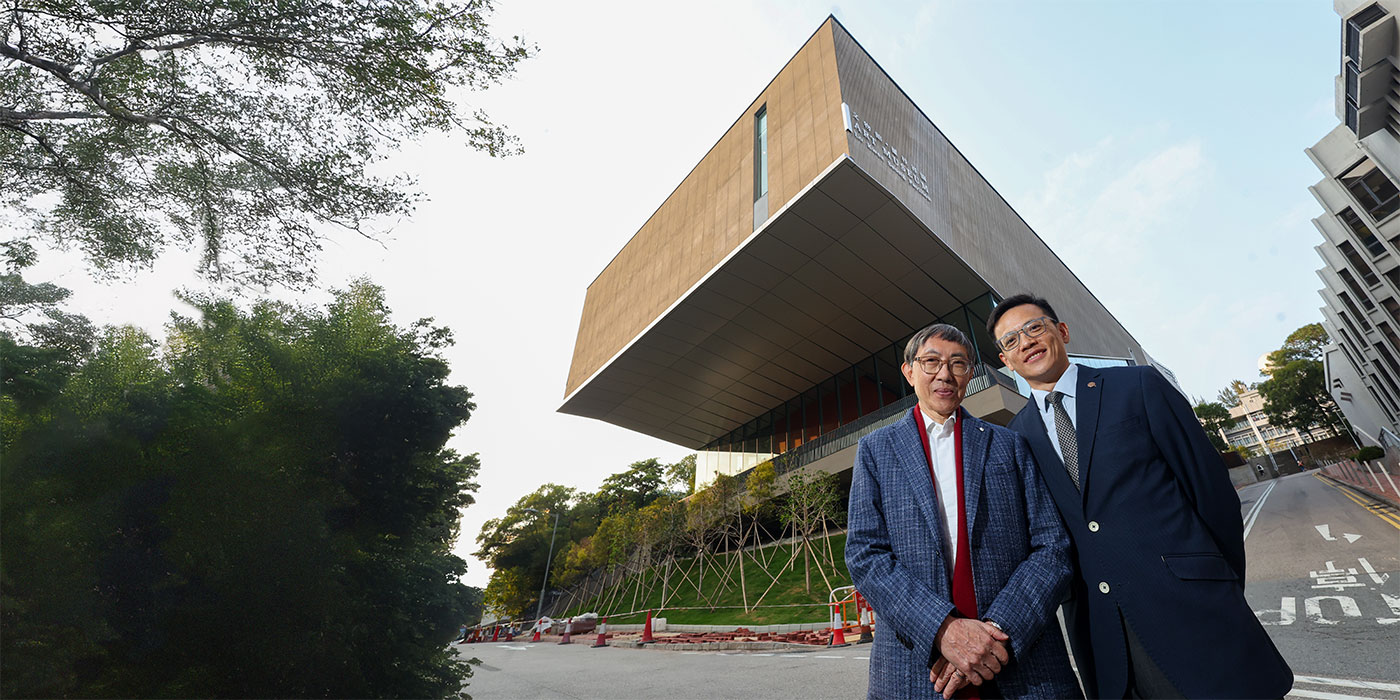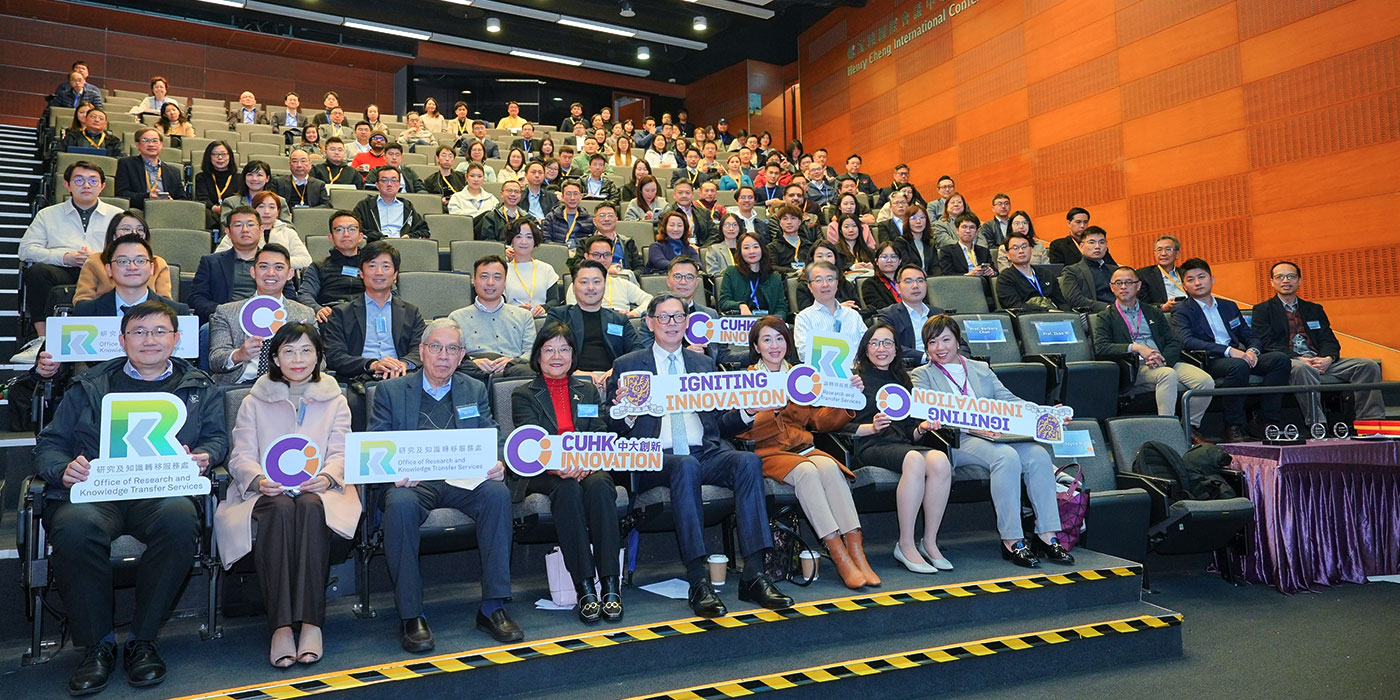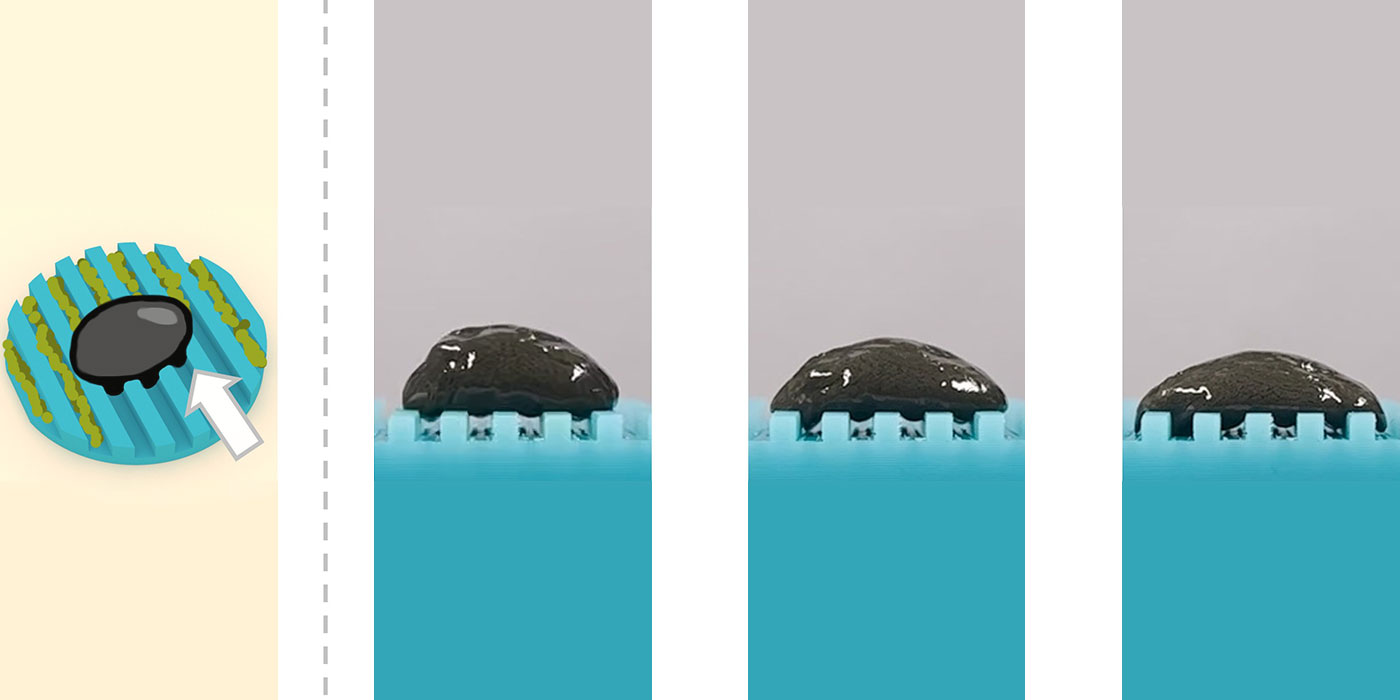CUHK-Shenzhen to accept HKDSE results for 2025 admissions
20 HK students become first batch admitted via mainland's Joint Entrance Examination
This year marks the 10th anniversary of The Chinese University of Hong Kong (Shenzhen). For the first time, CUHK-Shenzhen has admitted 23 students from Hong Kong and Taiwan through the Joint Entrance Examination for Universities in the People’s Republic of China for Overseas Chinese, Hong Kong, Macao and Taiwan Students. Starting from the 2025-26 academic year, CUHK-Shenzhen will accept applications for all programmes from Hong Kong students using their Hong Kong Diploma of Secondary Education Examination (HKDSE) results.
To applaud the first-decade milestone, Professor Xu Yangsheng, President of CUHK-Shenzhen; Professor Cai Xiaoqiang, Associate Vice-President; Professor Davy Cheng, Dean of Medicine; and Professor Zheng Yongnian, Dean of School of Public Policy shared the decade-long development of CUHK-Shenzhen.

Cooperation between CUHK’s two campuses was strong in the first decade, said Professor Xu as he looked back on the achievements. He pointed to initiatives such as the jointly offered “2+2” double major programmes, which allowed Hong Kong students to gain experience and build connections on the mainland during their studies, giving them an edge in future careers.
Professor Xu also mentioned plans for deeper collaboration, “the two campuses will collaborate more in many other areas, including artificial intelligence and materials science,” he said.
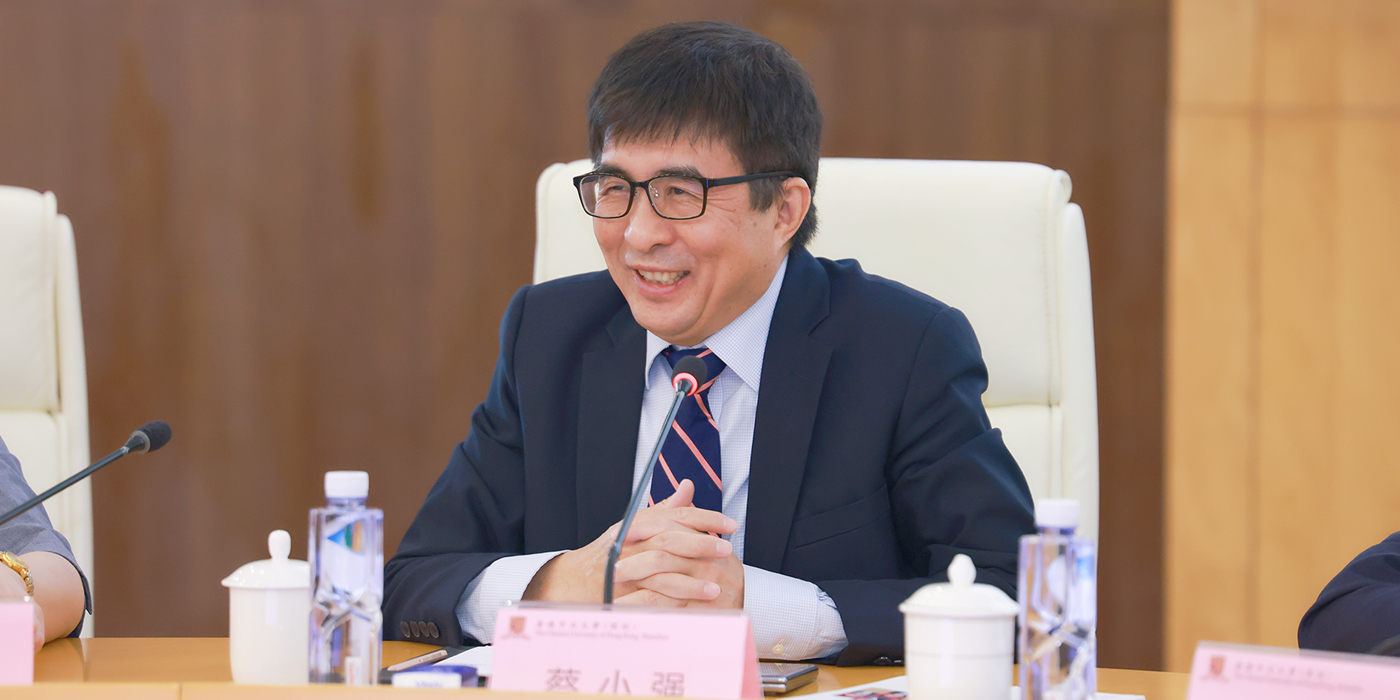
Professor Cai highlighted that in the current academic year, they had accepted for the first time 20 students from Hong Kong and three from Taiwan through the mainland’s Joint Entrance Examination, all of whom had excellent results.
He further revealed that CUHK-Shenzhen had received approval from the Ministry of Education to provide more channels of admission apart from the Joint Entrance Examination. Starting next year, Hong Kong students would be able to apply for any CUHK-Shenzhen programme with their HKDSE results, with the selection process based on academic performance and interviews. “We hope that the new channel can attract more students from Hong Kong,” Professor Cai expressed.
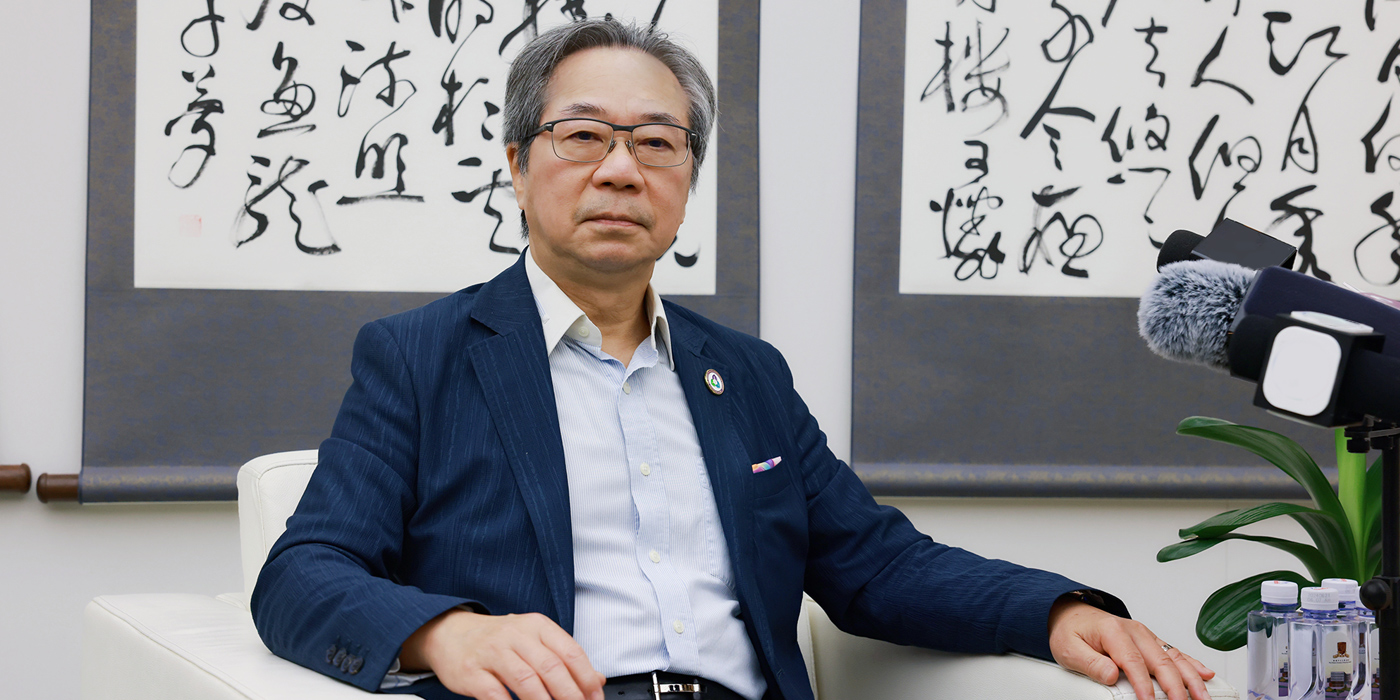
The new channel of admission would open up possible entry to CUHK-Shenzhen’s School of Medicine. School dean Professor Cheng said that upon completing the six-year programme, graduates would be eligible for the mainland’s licensing examination and residency training.
He emphasised that the School’s curriculum, admission standards and graduation requirements were fully aligned with CUHK, ensuring that graduates should encounter no difficulties when taking licensing assessments in Hong Kong or overseas countries such as Canada, Singapore and the United States. CUHK-Shenzhen aimed to train internationally qualified doctors to address the shortage of health care professionals, particularly in the Guangdong-Hong Kong-Macao Greater Bay Area (GBA), he said.
“Our medical students will learn about machine learning, natural language processing, safety and confidentiality issues in AI, and more, to prepare them for working in the future health system. Our school is leading a transformation in the GBA,” Professor Cheng stated.
Professor Cheng also noted that their graduates would receive dual degrees—a Bachelor of Medicine and a Bachelor of Science in Clinical Medicine—both of which were recognised globally, enabling graduates to pursue further studies or career opportunities elsewhere in the world. They would have a distinctive edge by benefiting from unique elements in the curriculum, such as the application of artificial intelligence in medicine.
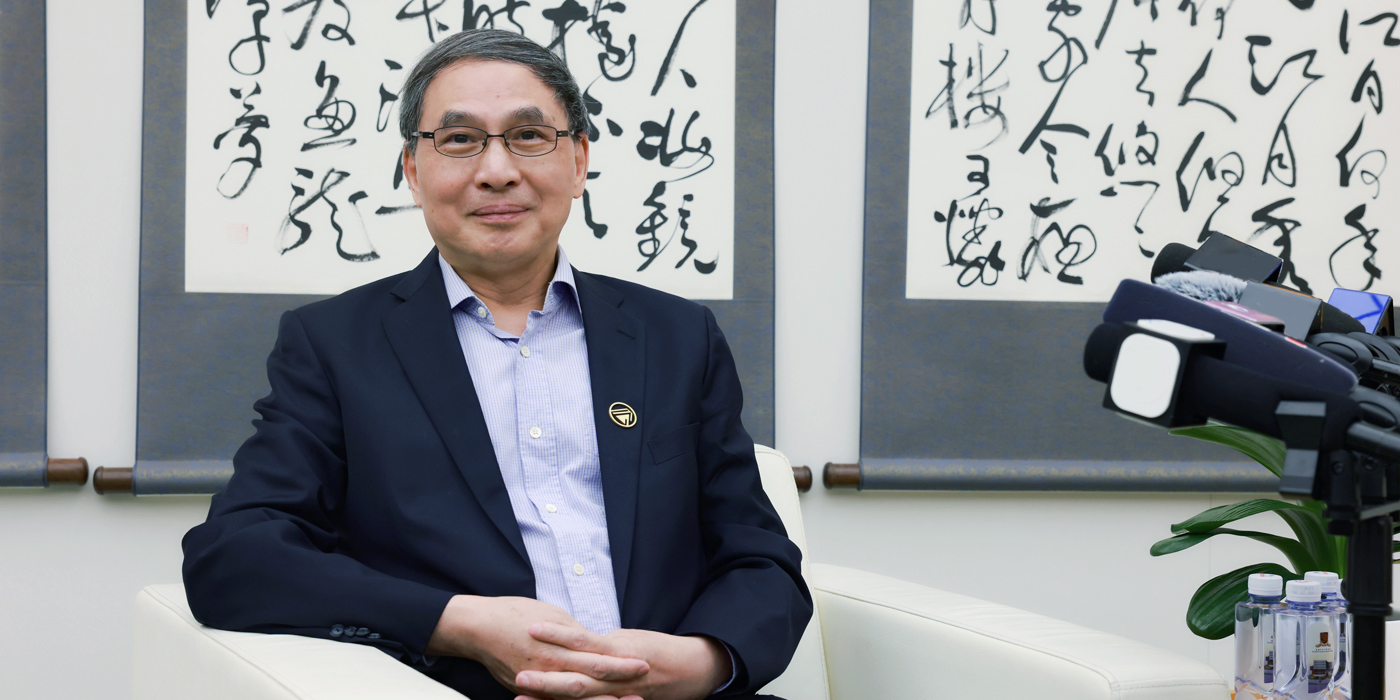
In another landmark development, CUHK-Shenzhen established the School of Public Policy this year, offering master’s and doctoral programmes. The two master’s degrees are in Public Policy and Urban Studies.
School dean Professor Zheng commented on the state of social sciences in China, observing that much of the discipline was “imported” from the West. He argued, “While natural sciences were universal, social sciences must be grounded in the specific cultural and historical context of each society.”
“‘Soft power’, such as philosophy, social sciences and the arts, was integral to supporting the rise of China’s economic ‘hard power’”, Professor Zheng commented. He envisioned developing a social science knowledge system rooted in practical Chinese experience and cultivating talent with a deep understanding of both China’s unique conditions and global affairs.
Looking ahead, Professor Zheng was optimistic about the prospects of the GBA, where CUHK and CUHK-Shenzhen were situated. He highlighted the complementary strengths of the region’s three major cities—Hong Kong, Shenzhen and Guangzhou—and stressed the need for cooperation among them. A failure to wield their distinct advantages could lead to cutthroat competition and “involution”.
In particular, Professor Zheng praised Hong Kong’s robust financial services and research capabilities, especially in artificial intelligence and biomedicine, while noting that its capacity for translating research into production remained weaker; in contrast, the Pearl River Delta excelled in mass production. He concluded: “If the GBA’s research and industrial capacities can work in closer synergy, the results would be nothing short of extraordinary.”
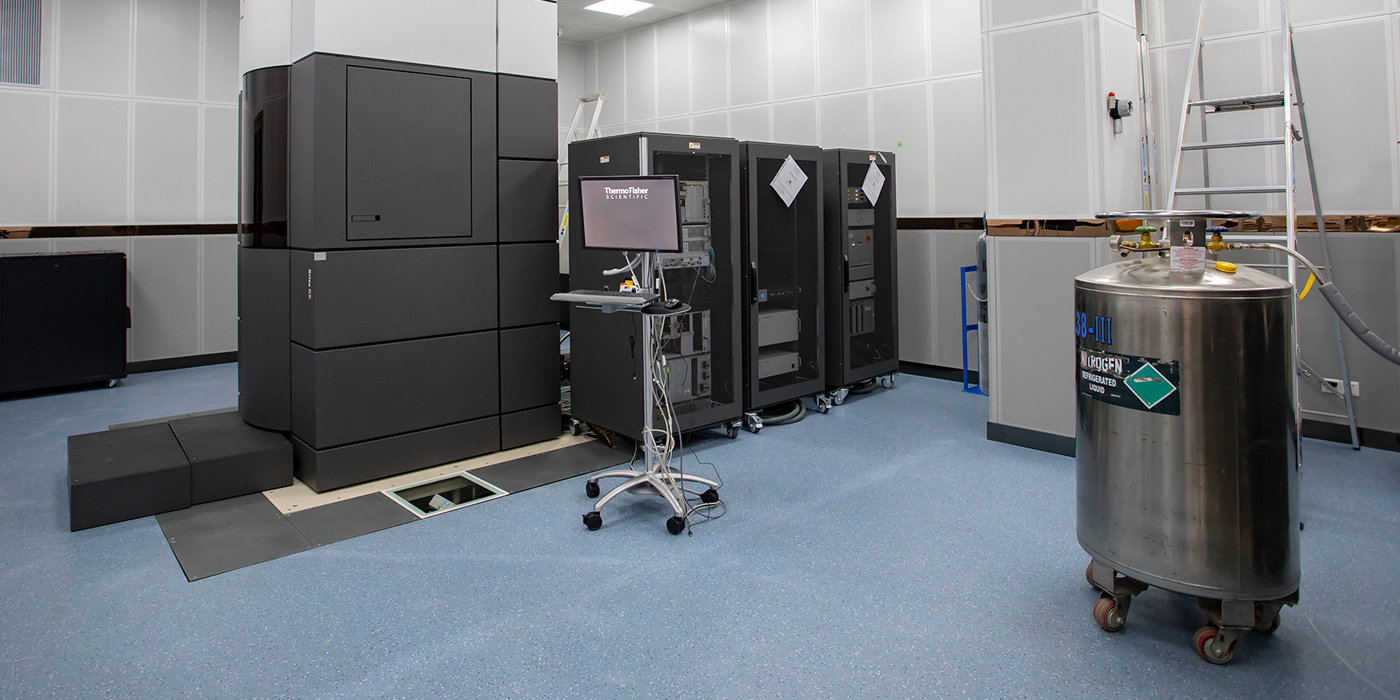
By Jessica Chu
Photos courtesy of CUHK-Shenzhen

